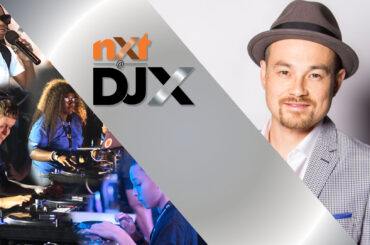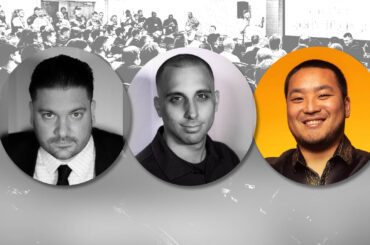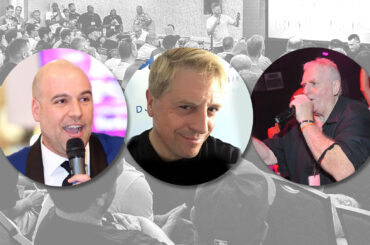Delta Heavy’s Ben Hall doesn’t live anywhere. It’s not as dire as it sounds or as unusual as it may seem for a musician who spends more time on the road than at home. But, at the moment, Hall is slumming it in Los Angeles after completing a North American tour with Calyx & TeeBee. Meanwhile, his other half, the London-residing Simon James, is putting the Delta Heavy stamp on a bunch of European cities with his own DJ tour.
It’s a particularly busy time for the British duo, whose long-awaited debut album, Paradise Lost, is finally out on drum-n-bass powerhouse, Ram Records. While Delta Heavy has been releasing tracks from Paradise Lost for the last 18 months, hearing the 14 tracks collected together generates a deeper appreciation for the breadth of the duo’s multi-genre production abilities. Finally, fans get almost everything in one package.
Delta Heavy, who co-opted its name from the long-defunct Sasha and Digweed tour, formed its official partnership in 2008. The unifying force was, and is, drum-n-bass, but the two have never been locked down to a particular BPM. The track that got Delta Heavy the most attention was its 110-BPM remix of Nero’s “Must Be the Feeling,” which they followed with their own dubstep-y track, “Empire.” But, as Hall says, “We got bored of that sound.” This is not unexpected from Delta Heavy and releasing an album rather than just EPs or singles allows the duo to experiment with not only styles, but speeds.
Paradise Lost still has its share of d-n-b dancefloor tracks, many of which fall into the harder-hitting, headstrong variety, such as “Pathways” and “Oscillator.” On others, like “City of Dreams”5 and “Event Horizon,” a mesh of trance is constructed through the robust d-n-b scaffolding. With its creepy spoken-word intro, “Tremors” harkens back to Vincent Price’s similar bit on Michael Jackson’s “Thriller,” before it kicks into a ripping banger. Elsewhere, soulful vocals accompany the breaks-meet-future-house of “Punish My Love” and the electro-bounce of “Reborn.”
“If you’re an artist who does a range of styles, it’s hard to please everyone,” says Hall, who minds most of the group’s engineering needs, while James handles its melody/chord-progression tasks. “There are people who like one style and want you to keep doing the same thing. They want you to do music for them, not for yourself, not for others, just for them. The album gives us a chance to cater to everyone—not that that was our intention, but I think we’ve ended up catering to most of our fans.”
Work on Paradise Lost began at the duo’s Central London studio, which moved location a few times and has since been closed. Here they did the writing and recording, including the vocals, which are tracked on a Neumann U 87 microphone through an API preamp into Elysia Mpressor compressor into a Prism Sound Orpheus interface. It was finished and mixed at home on laptops. Although they had access to outboard gear, like the Access Virus TI, software synths like Native Instruments Massive and Spectrasonics Omnisphere 2—“That would be our desert island thing,” says Hall—figured largely in Paradise Lost’s sound.
For mixing, the duo used Soundtoys, Fab Filter, and iZotope Ozone plug-ins. Delta Heavy gets its mastering done at the shrine of drum-n-bass mastering, Ten Eight Seven Mastering with the famed Beau Thomas, but Hall does much of it at home. “We send [Thomas] the pre-masters with 2 dB of headroom reduction,” explains Hall. “The way everyone produces these days is quite loud and when you’re going to the loud, clean sound everyone is aiming for, it’s quicker and easier for [Thomas] to keep it in software—even in his amazing analog room.”
Their DJing is similarly clean, as they employ USB sticks, along with four Pioneer CDJ-2000NXS CDJs and a DJM-900NXS mixer. “We use them properly,” says Hall. “We mix two tunes to drop together live. A lot of people pre-record edits that are one tune and another tune is dropping in so they can go on the mic or jump up on the table. We don’t do anything. It’s quite hard to hype the crowd on the mic, take Snapchats of your set, while mixing on three decks. When I try to do that, I drop my phone. I need two interns for that.
“We come from vinyl and turntables,” he continues. “I used to have DJ nightmares where I’d be looking for the next track and couldn’t find it in my record bag. Those nightmares have been replaced by technical ones where I press play and there are no tracks on my USB, and the other one doesn’t work.”







